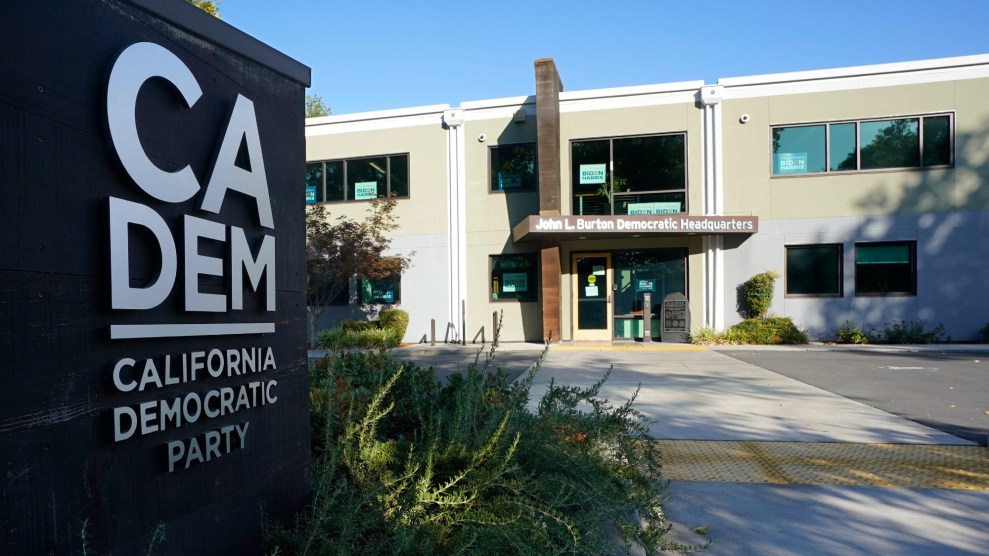
Two men were charged with plotting to bomb this Democratic Party building in California.Rich Pedroncelli/AP
This winter, two men who wrongly believed that Donald Trump won the 2020 presidential election allegedly concocted an elaborate plan to bomb the California Democratic Party’s headquarters in Sacramento—and even assembled the bombs with which they hoped to do it.
Federal prosecutors disclosed the alleged plot by 45-year-old Ian Benjamin Rogers and 37-year-old Jarrod Copeland in an indictment unsealed this week.
Rogers was taken into custody earlier this month after state officials and the FBI searched his home and found 49 firearms—including several that appeared to be automatic weapons—about 15,000 rounds of ammunition, five assembled pipe bombs, materials that can be used to make more explosives, and two device-building manuals. The FBI also found insignia of the Three Percenters, an anti-government militia group, and a gag credit card refashioned into a “white privilege card” with the inscription “white privilege trumps everything” and a number made up entirely of “0045,” likely in reference to Donald Trump, the 45th president.

The indictment in the case described how Rogers and Copeland began planning their attack over encrypted text message apps just a few weeks after the November 2020 election. “Ok bro we need to hit the enemy in the mouth,” Rogers wrote to Copeland. “I think right now we attack democrats. They’re offices etc. Molotov cocktails and gasoline.” Copeland responded that they would need more people. Over the next several days, they settled on a location—the state Democratic Party headquarters in Sacramento—and ping-ponged increasingly violent ideas for how to execute their attack.
“I think I’ll do a drive bye and unload a couple drums into that commie building,” wrote Rogers. Copeland responded with a simple: “Lol.” Then they opted instead to “fire bomb the place.” Rogers added, “Guns are too loud.”
As January 6 certification of election results approached, Rogers and Copeland made plans to attack if the election results were, in fact, certified. Copeland reached out to the Proud Boys—an all-male neo-fascist group—to request their assistance. When Congress certified the election results after a day marked by a deadly insurrection on Capitol Hill, the pair decided to wait until after inauguration day on January 20. “After the 20th we go to war,” Rogers wrote. “Sad it’s come to this but I’m not going down without a fight.”
Officials in Rogers’ hometown of Napa arrested him five days before the date of the planned attack.
Rogers’ attorney told the Washington Post that Rogers’ comments were hyperbole, and there was never a plan to put them into action: They were “pro-Trump histrionics that follow in line with, I guess, tens of millions of other people who supported Mr. Trump.”













